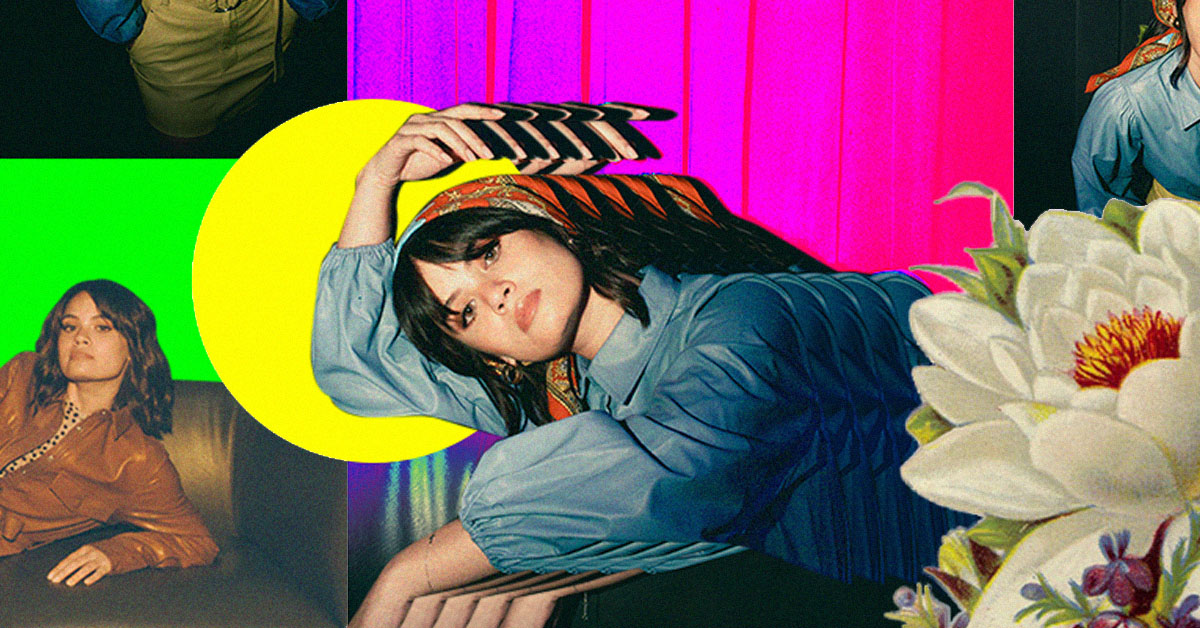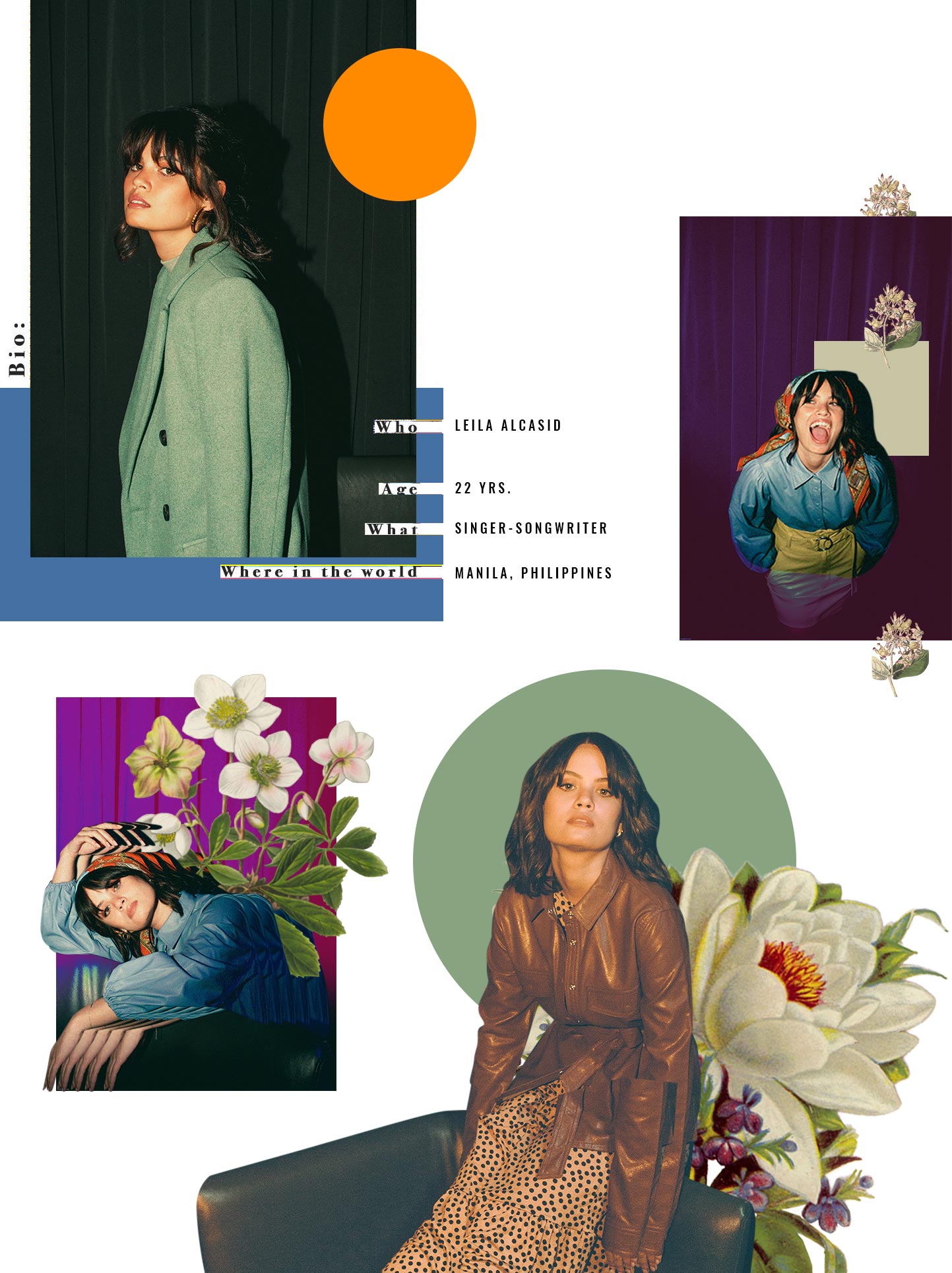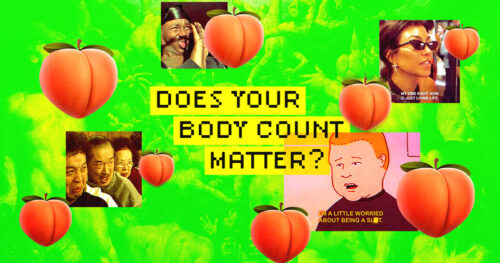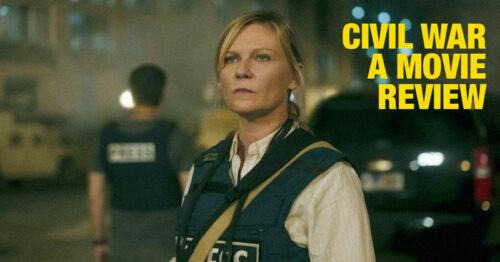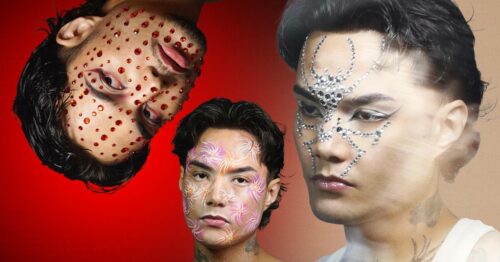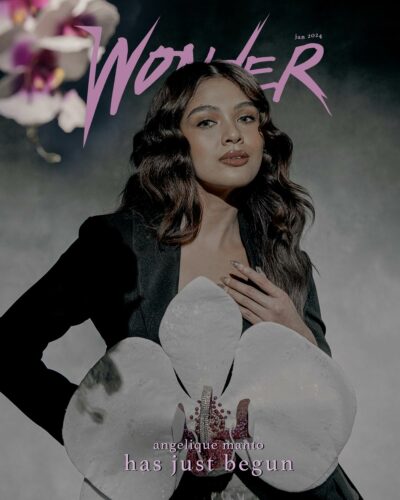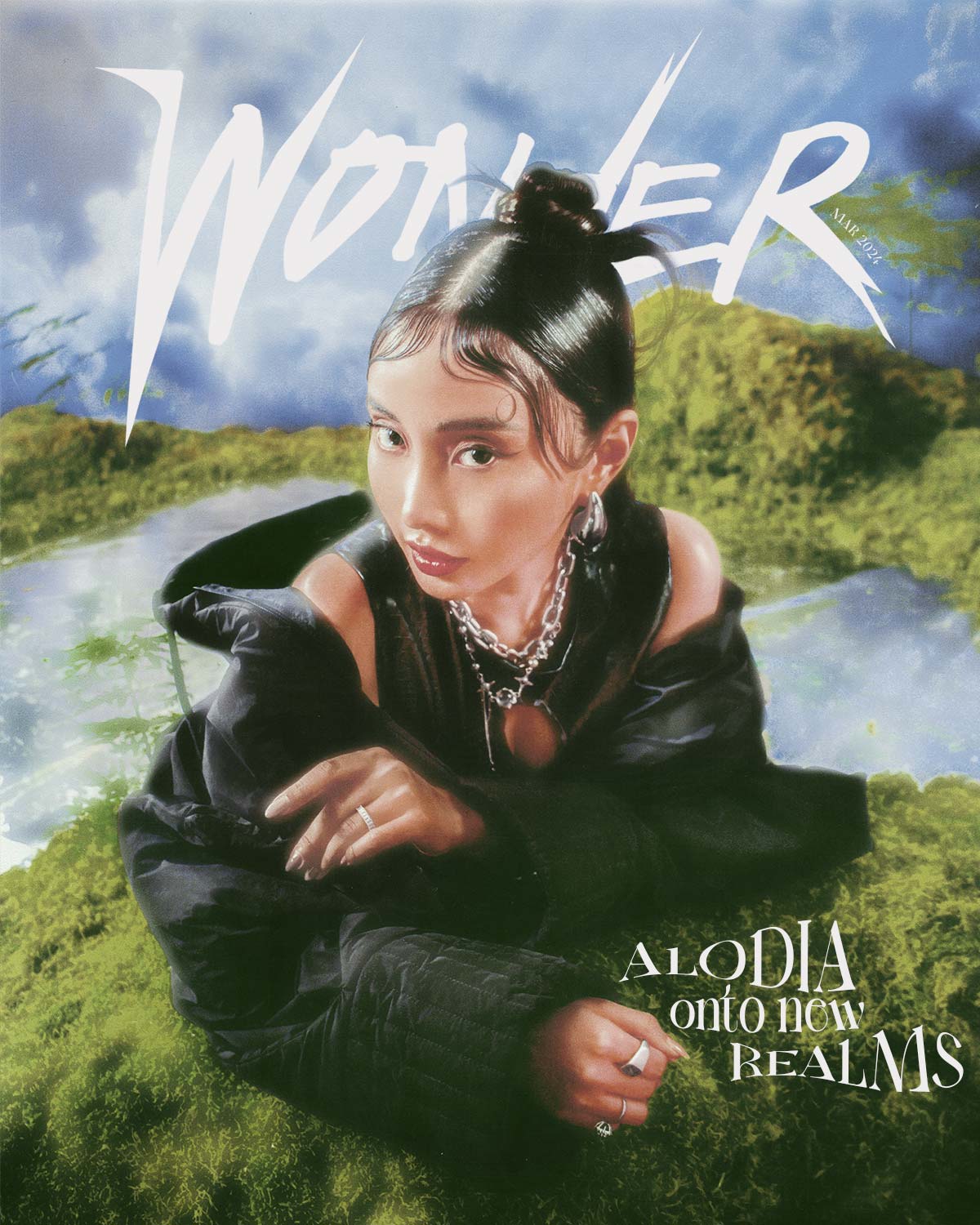How the singer-songwriter found love in all the right places
It’s okay to feel feelings. Leila takes interest in my phone's graphic wallpaper before our exchange, quite fitting for life, as she now knows it. After years of feigning self-confidence—inherently struggling with the idea of loving herself—she's in a season of imminent growth where she can truthfully declare, “I love myself.”
The singer-songwriter moved to the Philippines at the age of 19, supposedly to take a gap year from university. She entered the dizzying world of show business—after all, she comes from a family of Filipino icons—exploring the many facets of the industry before finally getting to a point where she realized, it's simply not for her. This sense of clarity played a significant role in the production of Better Weather, her recently released 5-track EP revolving around love, in all its forms and expressions. All tracks—a sultry and hypnotic blend of pop and R&B—bring out “a steady energy of admission and submission to fate and where it leads.” Through this emotional catharsis, she ends up finding her identity amid the noise.
To get to know her most vulnerable self, I backread through her personal blog that she hasn’t touched in years. “Surprise me,” she says. This was a safe space for the then 19-year-old to make sense of life through writing, finding comfort in the impermanence of things and new beginnings.
We caught up with the alluring figure—soft-spoken yet articulate—to chat about her newfound boldness, her struggles with mental health and the joy of finding the kind of love, which gives you room to become.
Wonder: You settled in the Philippines in January 2017 after spending most of your formative years in Australia. How has your perception of home changed? Can it be many places all at once—or people, by extension?
I definitely feel like I have more than one home. I recently spent my first Christmas in Australia since I moved. It’s weird because a lot of things are changing. I go home and it’s not like you leave and it stays exactly the same way. There [were] a lot of emotions tied to it but, at the same time, that’s when I realized that home is people.
I really found that in all my relationships—friendships, my family, romantic relationship—the place doesn’t matter. There are a lot of things I miss about Australia. It’s really where I got to know myself, but when I moved here, I was in that age—19 to 22—where it’s figuring out your life. That’s another form of finding out who you are.
Home can be people, home can be different places. People will travel around, and they’ll meet people who bring them a new sense of home. It’s a very dynamic thing.
W: Wonder’s theme for February is Love Is The Word. You’ve been outspoken about how you’ve struggled with loving yourself in the past. What made you start, in your own words, “respecting yourself” and “prioritizing your well-being?”
That took a really long time to put into action; I’ve been talking about it forever. From a young age, my “thing” is self-confidence. My self-esteem was quite low. I was insecure with my body; I would compare myself [to] my friends who were tall and slim. It became elevated when I moved here. When you come here and you join an industry where people are looking at you, it’s a natural thing that’s going to happen, and it’s no one’s fault really. People would comment on my pictures and be like, “You should look like this” or “This is too big” so that would get to me. I was constantly trying to impress and prove myself to everyone else.
I remember looking at so many people who can say confidently [that] “I love myself” and it didn’t make sense to me. How do you do that? I couldn't comprehend the idea in my head. I’d say it’s only been the last four months that I’ve been able to figure it out—and it’s fine.
I used to get so frustrated with myself. It’s like the whole saying, “You are your own harshest critic.” It just wasn’t about my body. I was really harsh on myself [with] my voice, my vocal ability, my place in showbiz, things like that [and] just the mere fact that I didn’t know what I wanted to do. So, in the last couple of months, I think what changed was I stopped caring. I stopped trying to prove myself to other people. Obviously, there [are] still remnants of it, and I have to remind myself that it doesn’t matter. What’s changed is doing things for my well-being and for my self-esteem and for the sake of my confidence. I don’t wanna let anything in my space that’s gonna compromise that or make me feel lesser than I am. Literally, yesterday, was the first time I said that I love myself—crazy.
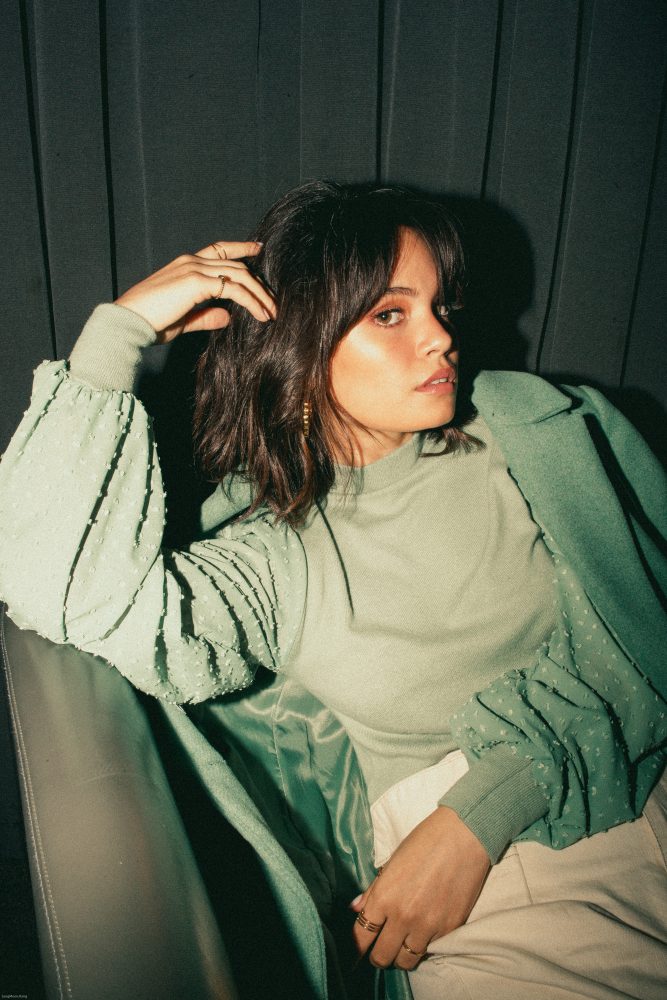 |
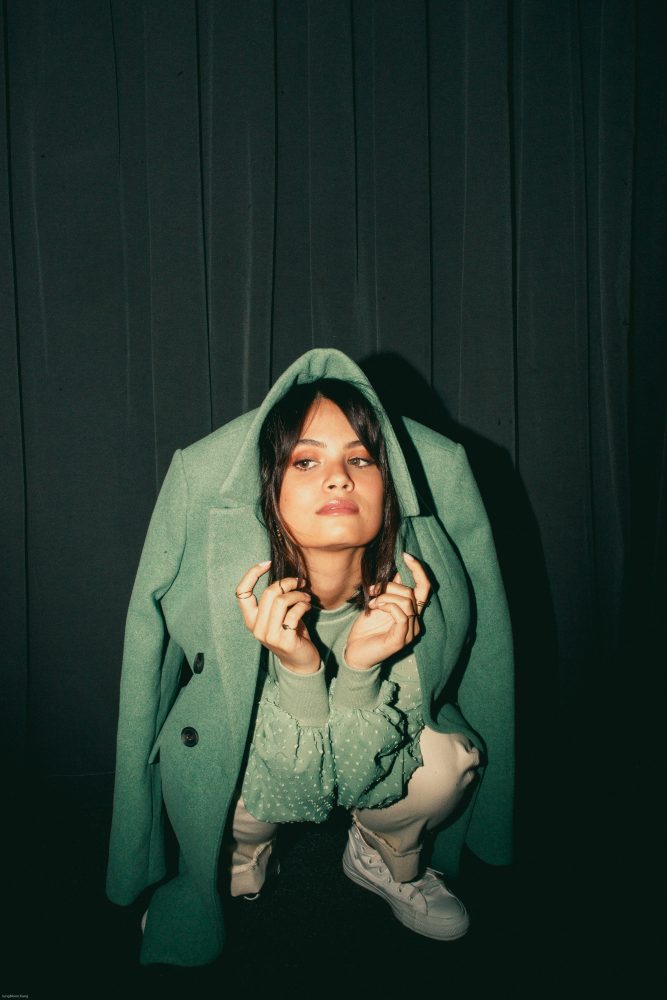 |
W: In Real Talk with your “Mama Reg,” you had a very open and intimate discussion on step-parenting. When and how did you become more open-minded with having a “modern family?”
I’ve actually always been okay with it. It’s my norm; it’s what I’ve always known. I think it was more, like, being okay with the reason why I had a modern family. It’s cool having people around. It was more like accepting how it came about because there was a time when it was just me, my mum and my sister. Seeing my mum struggle wasn’t fun. I was my mum’s biggest [defender] growing up. She had a good relationship with my dad [so] there really was no reason for me to be like that, but as a kid, you want to protect your parents. It was teenage angst.
I only saw my dad four times a year at most every couple [of] months and it was for four or five days. I guess I had a little bit of grudge in me where I was, like, “I wish I could see you more, that would be good.” I got over that pretty fast. When I was moving here, my mum was really the one who encouraged [our relationship] and said, “You just have to accept it. This is how our family is.” Once I let go of whatever angst I had, I fully accepted the situation as it was [and] I found a lot more peace. I had this tightness in my chest for a long time ‘cause I couldn’t let go of it. As soon as I forgot about it, it was easy.
W: In your recently released EP,Better Weather, there's an evident transition of seasons. Was that intentional? Which season are you in now?
The track ordering is very international. I start with Spring because it's the season I'm in now—spring in the sense [of] new beginnings, growth and all of that. The season before this was very tough. It was weeding all of the bad stuff out, accepting all the stuff [I] can’t weed out that was just there. There was a lot of heartache, I guess. I really struggled for, I’d say, the last two years even. It was a mix of personal things, missing people, things changing. It’s accepting that things changing can be so hard and that, on top of dealing with my own insecurity, feeling like I wasn’t good enough for the industry, all that stuff.
Right now is a big season of growth, new beginnings. I’m starting in a new school [and] accepting that my life might go in a different direction than what I initially thought it would—and accepting it. It was very intentional; I wanted the entire project to reflect that kind of transition. I wanted to show that I came from somewhere tough and [now] I’m in a good place.
W: No Rain is your anthem for mental health for this generation. How do you rise up when you’re wrestling with hope?
For me, it’s really having people around you. I used to be one of those people who didn’t want to depend on anyone. I can do this myself; I can figure this out myself. I was also very bad with being vulnerable, that’s why this project is very important, because I’m very vulnerable in it.
Sometimes, there are certain people in your life who don’t understand because they don’t experience it. It’s not a bad thing, they just don’t know how to help you. Something I had to learn [is] we have different people in our lives who offer different things and that’s really great.
[In] No Rain, I wanted to deliver [that] message that was still light…I wanna say that I’m okay with being in whatever stage I’m in. There were so many times when I didn’t want people to judge me so I would just hide. That wasn’t making me feel good either. My parents were worrying about me, they’d see me just sad. It was also accepting that it’s also part of my journey. I can’t crucify myself for going through that because everyone’s going through it. Since having Better Weather out, it’s a weight off my shoulders. I used the songwriting to get everything out of my chest and externalize all of it.
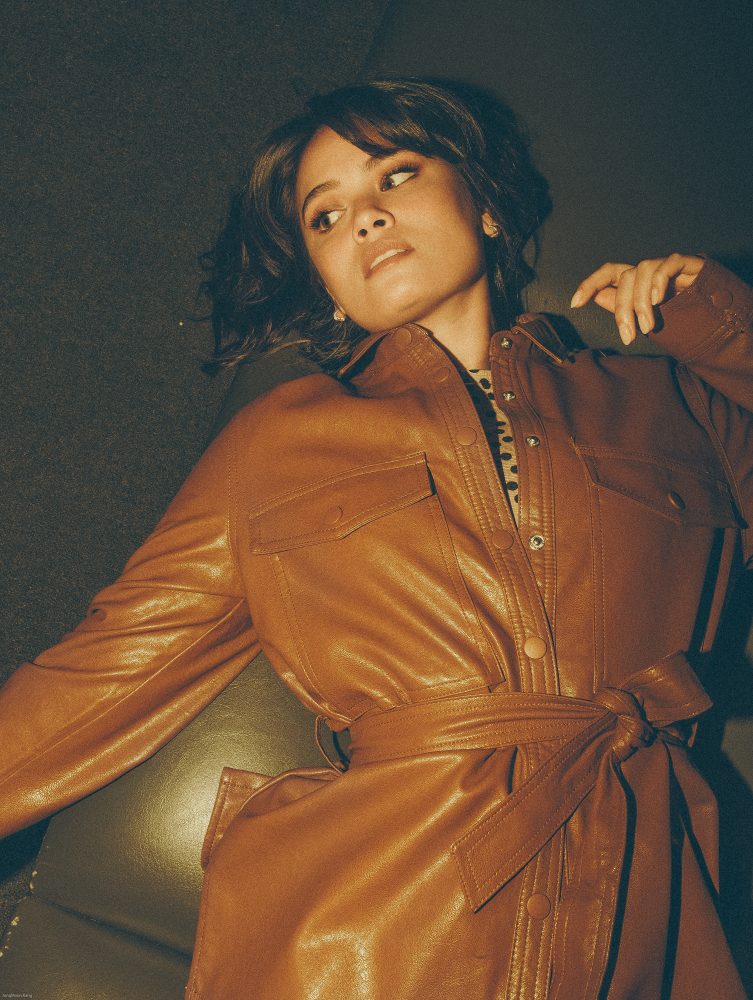 |
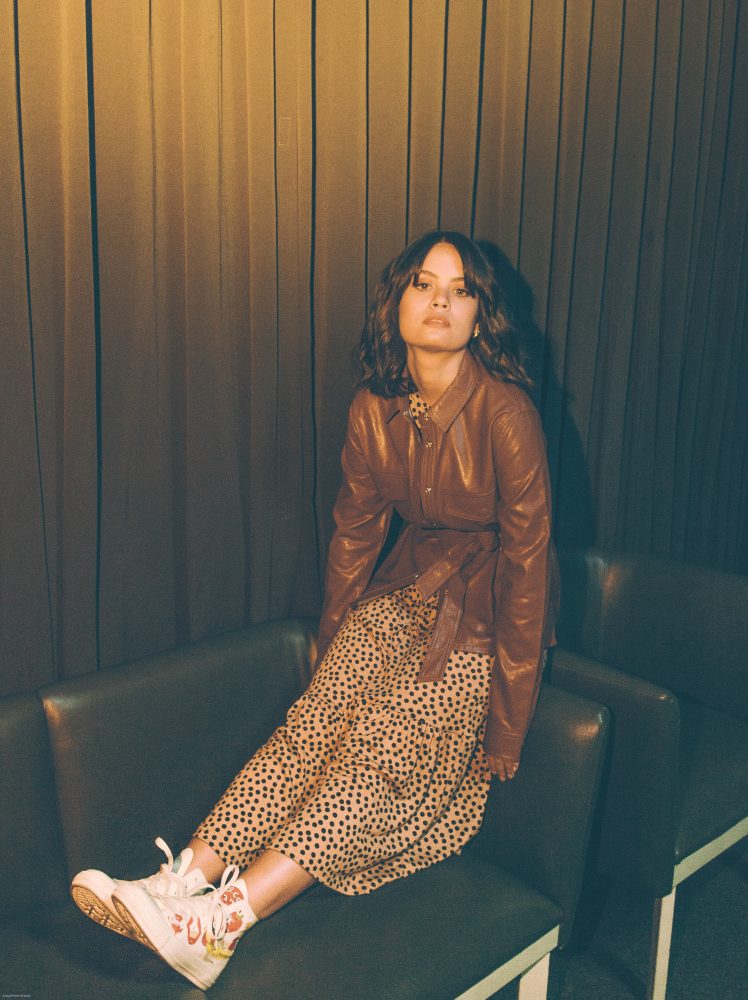 |
W: What was it like working with Mito a.k.a Curtismith on Time? Can you talk a little about how it taps on the idea of intimacy of “knowing the soul?”
The process of working on the song is interesting because I was so intimidated by working with him. I also have so much respect for him as a person and as an artist. We wanted it to be organic, I didn’t want it to be a forced thing. Fern sent me a beat, Mito liked it and we worked on it. I just wrote a melody, a hook and I sent it to him.
This song was hard for me to write because it’s close to my heart. [It's] talking about emotional intimacy, of knowing someone or him knowing me at least. The way we started was exactly like that. In most relationships, you put your best foot forward and you want them to see all the best parts of you so they like you. The funny thing is, the very first time we hung out, I just said everything that was wrong with me… It’s gonna come out eventually, why not just say it from the get-go? He did the same thing, he was honest with all his struggles. Our first conversation was already super intense, in terms of talking about what we were both going through.
That's the very thing I talk about in the song. He knows how I think, what I’m insecure about and what I’m not. It didn’t take long for him to understand me. That’s because, on his part, he also took the time to understand me and that’s something I appreciate.
Self-love proves to be a non-linear process, but getting to a place of clarity is worth it. In Better Weather, Leila Alcasid displays, in her own words, an “encompassing of love, growth and the deep connection it has with the idea that we have no control over our everyday paths; only the choices we make throughout.” She chose a path towards love and bloom, she did.
Stream Better Weather on Spotify. Stay updated with Leila Alcasid on Instagram and Twitter.
RELATED: Who's That Girl: August Wahh
Production Elisa Aquino
Photography and Videography Favour Ajah
Styling JL Crespo assisted by Krisha Gaffud
Makeup Justine Navato
Hair Suyen Salazar
Special Thanks to Instax Philippines
Art Alexandra Lara


